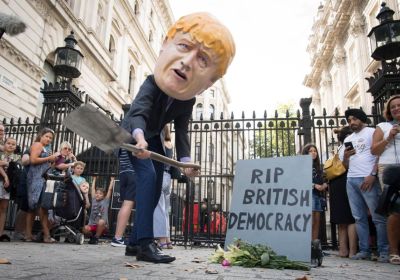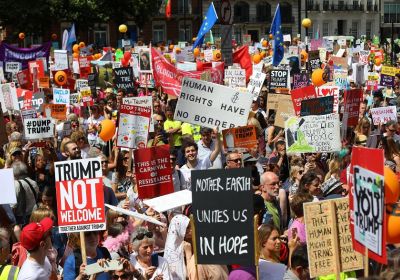-
-
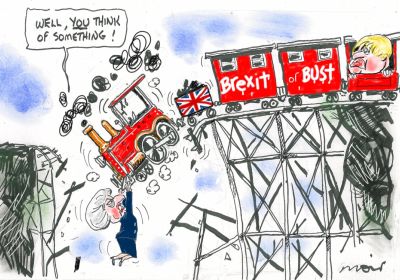
Though Boris Johnson was swept to power with apparent ease in the leadership election, deep divisions in parliament and the British public at large mean that delivering his three promises “deliver Brexit, unite the country and defeat Jeremy Corbyn“ will be a great challenge, writes John Lawrence.
-

Following Conservative Party leader Boris Johnson’s appointment as British Prime Minister, commentators are predicting a general election, possibly as early as October.
While a victory for Labour is far from certain, as it drops in the polls, Jonathan Cook writes that powerful forces are at work to ensure that Jeremy Corbyn — still the most popular Labour politician — never gets the chance to govern.
-

Yesterday is a family-friendly rom-com that satisfyingly reaches a heart-warming and highly ethical conclusion. It is almost ridiculously wholesome, writes Tracy Sorensen.
-
-
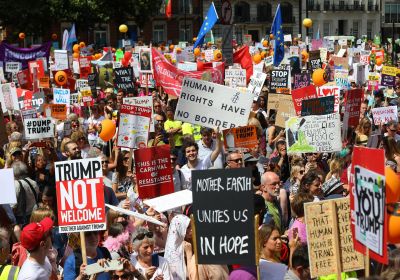
Tens of thousands of protesters shut down Westminster in London on June 4 to show their opposition to United States President Donald Trump’s state visit.
-
-
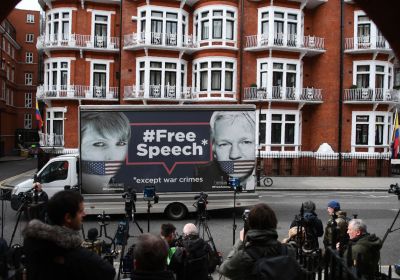
“The Department of Justice just declared war — not on Wikileaks, but on journalism itself. This is no longer about Julian Assange: This case will decide the future of media,” tweeted former National Security Agency whistleblower Edward Snowden on May 23.
-

The arrest of Julian Assange is an explicit warning towards journalists. What happened to the founder and editor of WikiLeaks can happen to you on a newspaper, you in a TV studio, you on radio, you running a podcast, writes John Pilger.
-
-
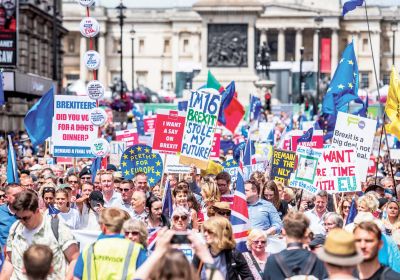
Two very different demonstrations within less than a week of each other neatly illustrated just how polarised British politics is.
-
Britain
Britain
